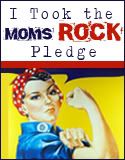It has been estimated that 70% of migraine sufferers are female. Of these female migraine sufferers, 60%-70% report that their migraines are related to their menstrual cycles -- hence the name, menstrual migraines.
What Is the Relationship Between Hormones and Headaches?
Headaches in women, particularly migraines, have been related to changes in the levels of the female hormone estrogen during a woman's menstrual cycle. Estrogen levels drop immediately before the start of the menstrual flow.
Premenstrual migraines regularly occur during or after the time when the female hormones, estrogen and progesterone, decrease to their lowest levels.
Migraine attacks typically disappear during pregnancy. In one study, 64% of women who described a menstrual link to their headaches noted that their headaches disappeared during pregnancy. However, some women have reported the initial onset of migraines during the first trimester of pregnancy, with disappearance of their headaches after the third month of pregnancy.
What Triggers Hormonal Migraines in Women?
Birth control pills as well as hormone replacement therapy during menopause have been recognized as migraine triggers in some women. As early as 1966, investigators noted that migraines can become more severe in women taking birth control pills, especially those containing high doses of estrogen.
The frequency of side effects, such as headache, decreased in those who took birth control pills containing lower doses of estrogen and did not occur in those who took birth control pills containing progesterone.
What Are the Treatment Options for Menstrual Migraines?
The medications of choice to stop a menstrual migraine are nonsteroidal anti-inflammatory medications (NSAIDs).
The NSAIDs most often used for menstrual migraines include:
* Orudis
* Advil and Motrin
* Nalfon
* Naprosyn
* Relafen
NSAID treatment should be started two to three days before the menstrual period starts and continue til the period ends. Because the therapy is of short duration, the risk of gastrointestinal side effects is limited.
For people who have severe menstrual migraines or who want to continue taking their birth control pills, doctors recommend taking a NSAID, starting on the l9th day of the cycle and continuing through the second day of the next cycle.
Other medications that may be used are given by prescription only. They include:
* Small doses of ergotamine drugs (including Bellergal-S, Cafergot, Migranal)
* Beta-blocker drugs such as propranolol
* Anticonvulsants such as valproate (Depakote)
* Calcium channel blockers such as verapamil
These drugs should also be started two to three days pre-menses, and continued throughout the menstrual flow.
Because fluid retention is often associated with menses, diuretics have been used to prevent menstrual migraine. Some doctors may recommend limiting salt-intake immediately before the start of menses.
Lupron is a medication that affects hormone levels and is used only when all other treatment methods have been tried and have been unsuccessful.
What Are the Treatment Options for Menopausal Migraines?
For people who need to continue post-menopausal estrogen supplements, the lowest dose of these agents should be used, on an uninterrupted basis. Instead of seven days off the drug, you should take it on a daily basis. By maintaining a steady dose of estrogen, the headaches may be prevented. An estrogen patch (such as Estraderm) may also be effective in stabilizing the levels of estrogen.
What Are the Treatment Options for Migraines During Pregnancy?
During pregnancy, no treatment is recommended to treat migraines. Medication therapy used to treat migraines can affect the uterus and can cross the placenta and affect the baby, so these medications should be strictly avoided during pregnancy.
A mild pain reliever can be used, such as Tylenol. It is important that pregnant women suffering from headaches discuss the safety of headache medications with their obstetricians and headache specialists before taking anything.
Tuesday, September 1, 2009
Migraines, Headaches, and Hormones
Posted by Gena - Lagean Ellis at Tuesday, September 01, 2009
Subscribe to:
Post Comments (Atom)




























2 comments:
Good article, Gena. I hope lots of women will read it. I've been lucky in that I've never had migraines (thank goodness)...
Thanks for posting this useful information.
Hugs,
Betsy
This is nice to read because I deal with migraines alot. I have other reasons of having them also though because of a car accident! Thanks for posting this!
Post a Comment